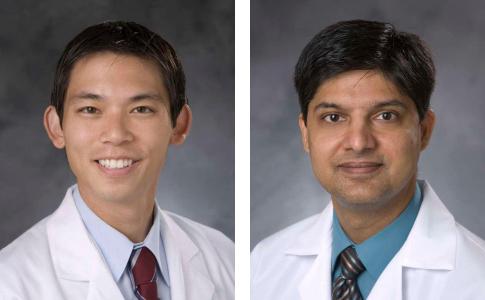
David Ming, MD, assistant professor of medicine (General Internal Medicine), pediatrics and population health, and Nirmish Shah, MD, associate professor of medicine (Hematology), pediatrics and nursing, are part of the winning team for the Health Resources and Services Administration Maternal and Child Health Bureau's Grand Challenge competition for Care Coordination for Children with Special Health Care Needs.
This challenge, which started with more than 60 teams competing across the country and was winnowed down to four finalists, supports innovative technology-based solutions that improve the quality of care, enhance family engagement, and positively impact health outcomes for families of children with special health care needs.
Dr. Ming and Dr. Shah collaborated with colleagues at Boston Children’s Hospital and Family Voices to develop CAREMAP, a software platform consisting of a patient-facing mobile app that leverages open standards and an associated Clinician Dashboard to support care coordination for families of Children and Youth with Special Health Care Needs. The personal health record integrates with the EHR to facilitate clinical communication and care coordination between families and the provider team.
“The team looks forward to building on this experience by expanding use of the Caremap application in EHRs and clinical environments and conducting rigorous evaluation of real-world implementation and effectiveness of Caremap on patient/family-reported outcomes. Because the challenges faced by families to coordinate care for children and youth with special health needs are also frequently experienced by adult populations – particularly those with multiple chronic conditions – the team also plans to explore opportunities to adapt the Caremap application for supporting the care coordination needs of adult with complex health needs," said Ming.
The team won awards in both the first and second phase of the prize competition and beat out three other teams in the final phase to win a prize of $130,000. They will continue to refine and scale CAREMAP and will be excited to see its uptake by families across the country.